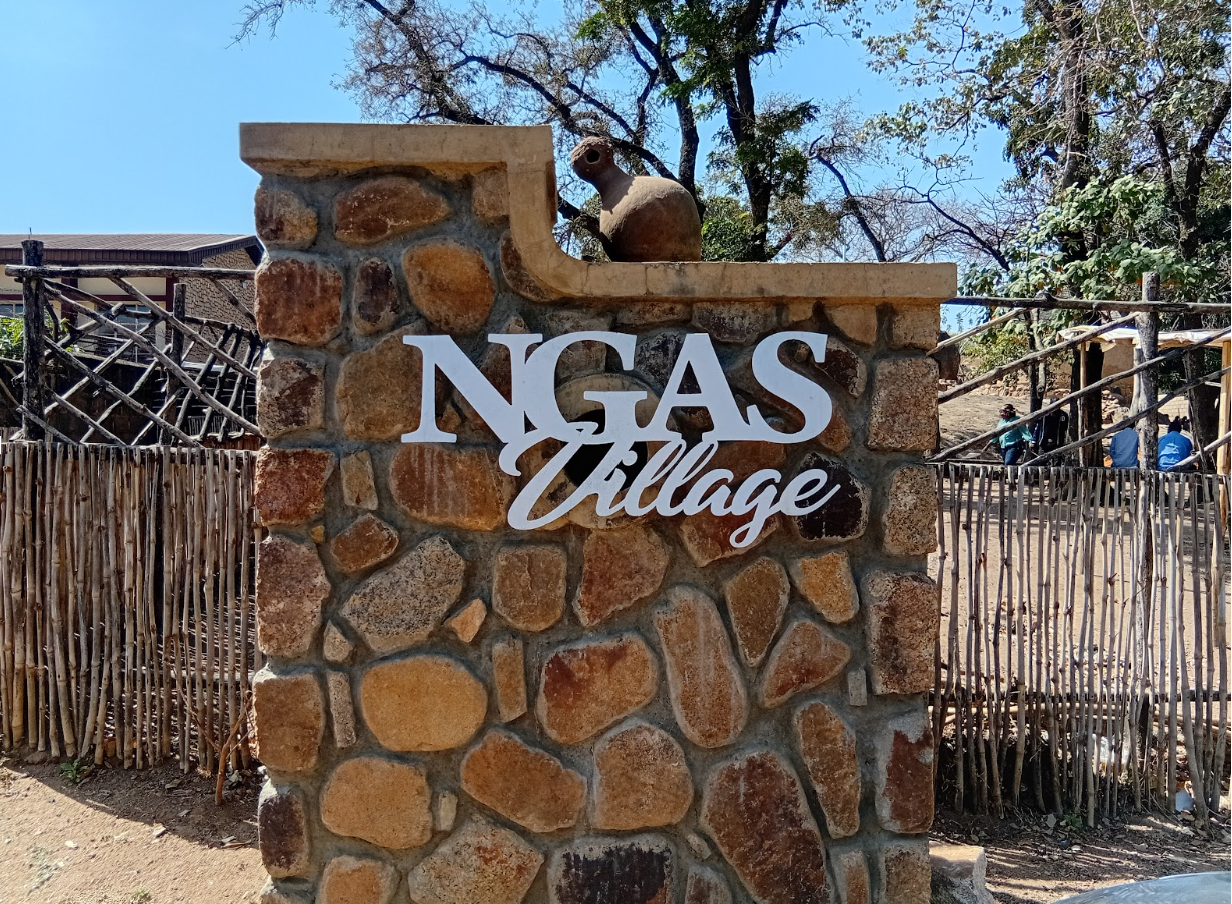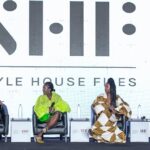On a warm Saturday afternoon, the Ngas Village Market buzzes with life within the picturesque premises of Plateau State’s National Museum. The rhythmic beats of sumbi dance drums fill the air as elderly folks, clad in woven benta, bene (animal skin), and bat (a piece of Ngas knitted cloth), recount ancient tales under the shade of village huts. Smoke from open fires wafts through the market, carrying the tantalising aroma of roasted assorted meat and freshly brewed local beer, drawing eager patrons seeking flavours reminiscent of home.
The Ngas people, primarily found in Pankshin and Kanke Local Government Areas (LGAs) of Plateau State—about 120 and 150 kilometres from Jos—have carved out a haven to preserve their cultural identity. This village market is a vibrant showcase of their crafts, cuisine and customs.
“I came up with this idea in 2014 while studying in South Africa, inspired by a market that sold cultural artefacts,” recalls Nde Chindapba Ngobang, Chairman of the Ngas Village and the Madakin Ballang of Shipang District. “When I returned, I pitched it to the Ngas Development Association (NDA). Since we are highly populated in Jos, our people accepted it immediately.”
To bring the idea to life, the NDA applied to the National Museum for a space to build the Ngas Village within its premises. “We received approval in 2018 and were also granted hosting rights for the International Museum Day that year,” Ngobang shares. However, the initial space allocation was reduced, requiring adjustments to their plans.
Plateau State’s Cultural Diversity
Plateau State, located in the heart of Nigeria, is the twelfth largest state by area. Home to over 3.5 million people from more than 40 ethnic groups across 17 LGAs, it boasts the highest linguistic diversity in the North Central geopolitical zone.
Every year on May 18th, Plateau State celebrates its rich cultural heritage during International Museum Day, an initiative by the International Council of Museums since 1977. This vibrant event highlights issues affecting museums in Africa and globally.
“Tribes like the Taroh, Berom, Afizere, and others also have designated compounds in the museum to showcase their culture during the Museum Day celebrations,” explains Ngobang.
The event draws participants from across North Central Nigeria, with the Jos museum serving as a cultural reservoir for the region’s ethnic groups. The museum’s art gallery houses the Museum of Traditional Nigerian Architecture (MOTNA), which preserves ancient and pre-colonial architectural styles.
In 2022, Fadamijo Omolayo, curator of the Jos Museum, highlighted how the annual celebration had evolved into a unifying platform for diverse communities. The Ngas people, however, have gone further, establishing a unique village market within the museum grounds—an uncommon initiative in Nigeria—creating a living cultural hub.
The Unique Village Market
The Ngas people—speakers of one of Plateau’s 46 languages—envisioned a village setting that would bring their rural lifestyle into the city. “We opted for a village setting rather than the compound structure allocated to other tribes,” says Ngobang. “Since our villages are in the hills, we replicated the rocky terrain to construct our huts and market.”
At the market, shoppers weave through bamboo stalls, cheerfully bartering for handcrafted artifacts. Others gather to enjoy kas and pito (local beer) brewed using traditional methods.
Ringret Walbe, a vendor, serves steaming plates of tuwon dawa (millet swallow) with puk fori (local soup). “I use kurguk (a local seasoning) to enrich the soup’s flavour,” she says. “For me, this market is more than a business; it’s a celebration. Every song, every dance, and every shared meal weaves a thread into the fabric of our culture.”
Amid the rapid tide of modernisation, the Ngas Village Market stands as a testament to cultural preservation. “Here, we communicate in our Ngas dialect, and everything—from the food to the beer and artefacts—is authentic,” Ngobang adds.
Since its launch in August 2024, the market has attracted a diverse audience, including other tribes and non-indigenes of Plateau State. “This place has brought us together in the city,” says Alex Kutji, the market chairman. “I’ve reconnected with friends I lost contact with in the village.”
A Model for Cultural Integration
Although Nigeria has numerous art and craft markets, the Ngas Village Market offers a rare experience.
Bimorit Wudana, a vendor grilling skewers of chicken over open flames, shares her excitement. “I bring local chickens from Kabwir village weekly to meet customer demand,” she says with a smile as warm as her fire.
For Dominic Christopher from Bassa LGA, the market is more than a trading hub. “It symbolises resilience and the Ngas people’s unwavering determination to preserve their legacy,” he says. “I visit every Saturday to enjoy nam ass (dog meat) and kas.”
The success of the Ngas Village Market has inspired others, such as the Goemai people from Shendam, Gerkawa and Namu districts, who recently launched their village market.
While Ngobang hopes the museum will grant the Ngas people the remaining space initially allocated, he envisions a larger goal: “We look forward to Nigeria having a cross-cultural market where ethnic groups can display their artefacts and heritage.”
The Ngas Village Market, held within Plateau State’s National Museum, is a cultural initiative by the Ngas people from Pankshin and Kanke LGAs, designed to preserve and showcase their rich cultural heritage. Established in 2014 and launched in 2024, this market reflects the rural lifestyle of the Ngas through handcrafted artifacts, traditional cuisine, and live performances. The market was inspired by a similar cultural initiative in South Africa and gained approval from the National Museum in 2018.
Plateau State, diverse in its ethnic composition, celebrates cultural events like International Museum Day to highlight rich histories. The Ngas Village Market is unique for its village setting instead of a compound structure, embodying the traditional rocky terrain of Ngas villages. The market attracts a variety of visitors, reconnecting people from different tribes and non-indigenes of Plateau, thus promoting cultural integration and safeguarding traditions amid modern influences.
The success of this market inspired others, such as the Goemai people, to initiate their cultural markets, emphasizing its role as a symbol of resilience and cultural integrity. The Ngas people aim for a broader cross-cultural market in Nigeria, encouraging ethnic representation of artifacts and heritage.






